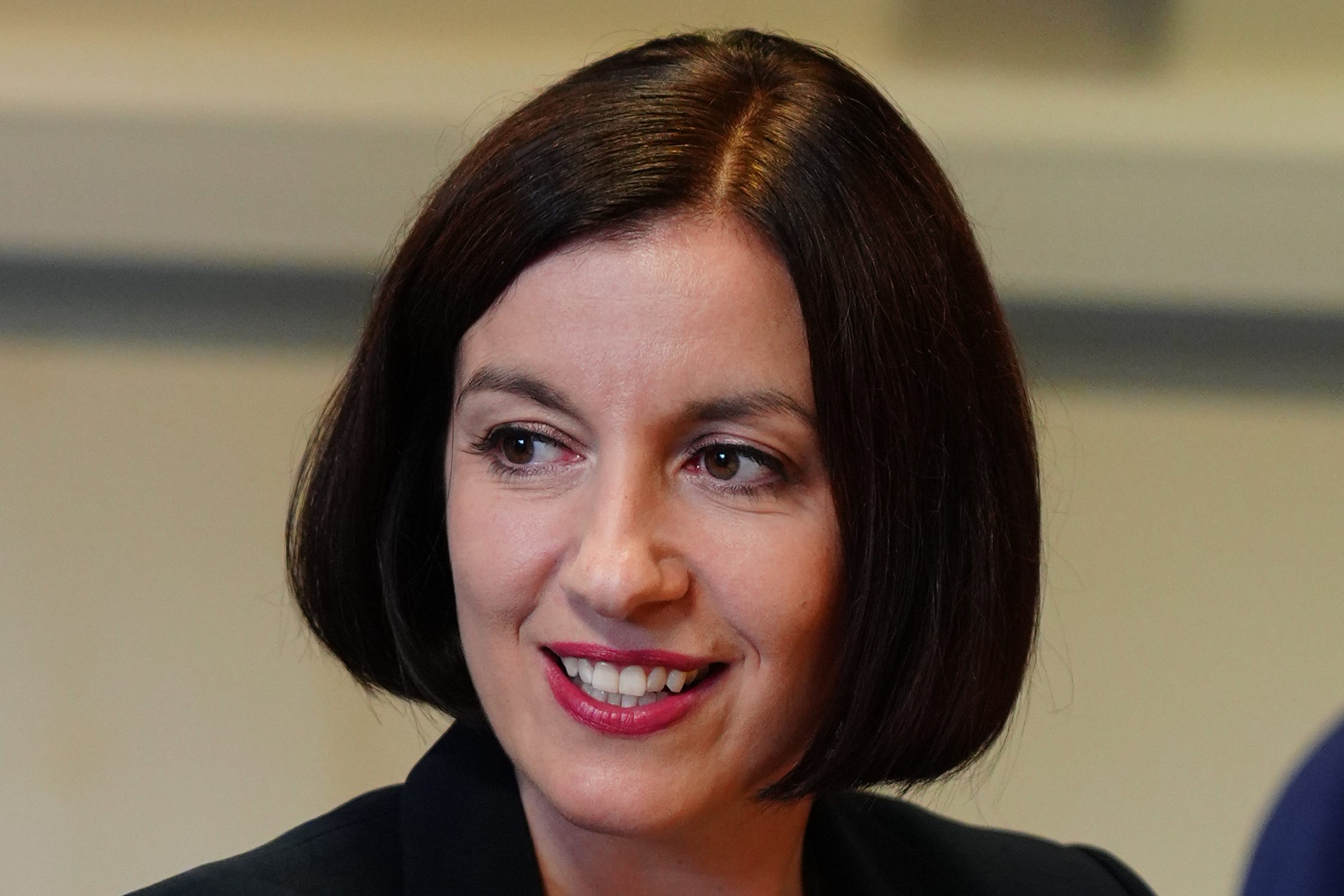Schools must create ‘inclusive’ spaces to tackle absence epidemic – Phillipson
The Education Secretary made her comments in a speech to hundreds of school and academy trust leaders in Birmingham.

Your support helps us to tell the story
From reproductive rights to climate change to Big Tech, The Independent is on the ground when the story is developing. Whether it's investigating the financials of Elon Musk's pro-Trump PAC or producing our latest documentary, 'The A Word', which shines a light on the American women fighting for reproductive rights, we know how important it is to parse out the facts from the messaging.
At such a critical moment in US history, we need reporters on the ground. Your donation allows us to keep sending journalists to speak to both sides of the story.
The Independent is trusted by Americans across the entire political spectrum. And unlike many other quality news outlets, we choose not to lock Americans out of our reporting and analysis with paywalls. We believe quality journalism should be available to everyone, paid for by those who can afford it.
Your support makes all the difference.Schools must create welcoming and “inclusive” spaces for pupils to tackle the country’s absence epidemic, the Education Secretary has said.
Bridget Phillipson told hundreds of academy trust chiefs that the Government “won’t accept” poor attendance levels caused by leadership practices.
On Thursday, the Education Secretary said young people need to feel they “belong in school” to tackle high pupil absences and improve the outcomes for children with special educational needs and disabilities (Send).
In a speech to the Confederation of School Trusts (CST) conference, Ms Phillipson said the Government would “focus on improving inclusivity and expertise” in mainstream education settings for children with Send.
She added that top exam grades alone would “not set young people up for a healthy and happy life”.
Ms Phillipson accused previous governments of having “tunnel vision”, adding that “profound reform” of what we value in schools was needed to ensure children’s well-being was also prioritised.
Addressing 1,500 school and academy trust leaders, Ms Phillipson said: “The absence epidemic is the canary in the coal mine for belonging in our country and the way we tackle this, the way we rip out the roots of this generational challenge, is to rebuild belonging through partnership and responsibility.
There is huge variation in attendance levels. Sometimes that reflects different intakes and resources, but sometimes it's difference in performance, whether leadership, practices or approach, and that we won't accept
“Parents have a responsibility to send their children to school, but schools and trusts must create welcoming, engaging and inclusive spaces for pupils.
“Our best schools and trusts do this, but we know that there is huge variation in attendance levels.
“Sometimes that reflects different intakes and resources, but sometimes it’s difference in performance, whether leadership, practices or approach, and that we won’t accept.”
In her speech in Birmingham, Ms Phillipson announced that Dame Christine Lenehan, the former director of the Council for Disabled Children, has been appointed as the Government’s strategic adviser on Send.
If we want our young people to leave our school system, not just with A*s in their pocket, but with a sense of power and purpose, children need to feel like they belong
She added that Tom Rees, chief executive of Ormiston Academies Trust (OAT), would lead an expert advisory group to help drive forward the Government’s work on inclusion in mainstream education settings.
Ms Phillipson said: “If we want to tackle the epidemic of school absence, children need to feel that they belong in school.
“If we want to transform the outcomes of all young people with Send, children need to feel that they belong in school.
“And if we want our young people to leave our school system, not just with A*s in their pocket, but with a sense of power and purpose, children need to feel like they belong.
If we fall into that trap of chasing a narrow shade of standards, structures-driven rather than child-focused, then children with Send get swept to the side and attendance crashes
“This government will always be strong on standards, but those standards will forever be in the pursuit of what’s best for our children.
“Because if we fall into that trap of chasing a narrow shade of standards, structures-driven rather than child-focused, then children with Send get swept to the side and attendance crashes.”
The Education Secretary said the Government was bringing together neurodiversity experts to work with the Department for Education (DfE) to look at ways to improve inclusivity and expertise in mainstream schools.
It comes after a report by the National Audit Office (NAO) last month said the special educational needs system was not delivering better outcomes for young people or preventing local authorities from facing “significant financial risks”.
Leora Cruddas, chief executive of the CST, said: “We welcome Bridget making her first major speech to the education sector to school trust leaders at CST’s annual conference, and her recognition of the work done by trusts across the country.
“Today’s announcements on new lead advisers on Send are also welcome. This area needs not just more funding but thoughtful, structural reform so that more children can receive the support they need.”